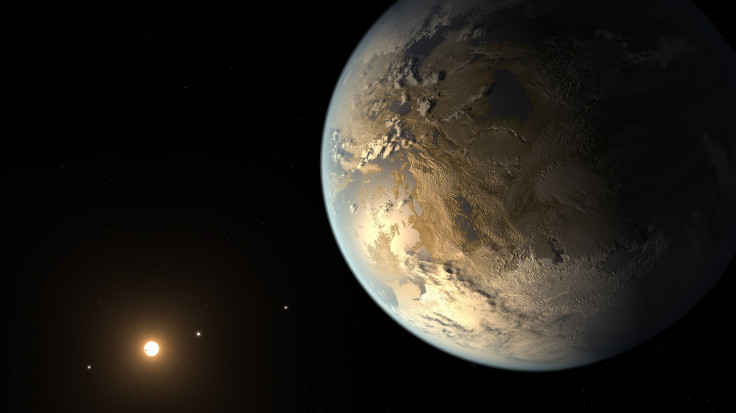Intelligent Life Might Always Go Extinct Once It Develops Technology

Intelligent life goes extinct shortly after becoming technologically advanced and that’s why we haven’t been able to connect with any alien species, one scientist is arguing.
At the center of his assertion is the mediocrity principle, which is popular among astronomers and dictates that there is nothing special about our species, our planet or our solar system — that everything that went into the evolution of human life on Earth could have happened in other places as well. It thus also dictates that the state in which we find ourselves is completely typical and can be generally applied to the rest of the universe.
Read: This Scientist Would Respond to Alien Messages With Internet Videos
University of Arkansas professor Daniel Whitmire is suggesting that if we go by this principle, it stands to reason that any technological species would find themselves in a similar situation to humans on Earth: “that they are both the first such species to evolve on their planet and also that they are early in their potential technological evolution,” according to his paper in the International Journal of Astrobiology. He argues that this implies intelligent species do not exist further along in technological evolution because they have gone “extinct soon after attaining a modern technology and that this event results in the extinction of the planet’s global biosphere.”
The exact details of how technologically advanced life on another planet evolved, like how long it took for it to emerge, are not relevant, Whitmire says. All that matter is that this life has developed electronic devices as well as technology that can affect the environment.
“A technological dinosaur species that evolved in 100 [million years] on a Mars-sized planet could still be first and early in their technological evolution,” the study says. “If we are typical of this reference class, then other members would, like us, observe that their technological species is the first to evolve on their planet and also that they are early in their potential technological evolution.”
Those species very well could have been the first on their planets to become advanced, rather than rising from the ashes of another technologically advanced group of beings, based on how it happened on Earth — the study notes that the timeline for how humans emerged and created technology leaves enough room for there to have been another similar species before us on Earth, but that didn’t happen.
The point at which humans became technological, according to this study, was about 100 years ago, after the industrial revolution and the radio burst onto the scene.
“According to the principle of mediocrity, a bell curve of the ages of all extant technological civilizations in the universe would put us in the middle 95 percent,” the University of Arkansas explains. “In other words, technological civilizations that last millions of years, or longer, would be highly atypical.”
Read: We Are Finding So Many Exoplanets That Aliens Probably Do Exist
That leads to the questions of why there should be only civilizations in which the inhabitants are new to technology and are the first on their planet to get that far.
If we assume the evolution and development of humans is typical, it follows that alien species like us were also the first on their planet — and thus “once species become technological, they flame out and take the biosphere with them,” the university says. The latter part, about the demise of the rest of the biosphere, is crucial to preventing other technologically advanced species cropping up on the same planet.
The other option is that humans and Earth are among the outliers, in which case Whitmire asserts that “by statistics, we have to be the dumbest guys in the galaxy. After all we have only been technological for about 100 years while other civilizations could be more technologically advanced than us by millions or billions of years.”
© Copyright IBTimes 2025. All rights reserved.





















